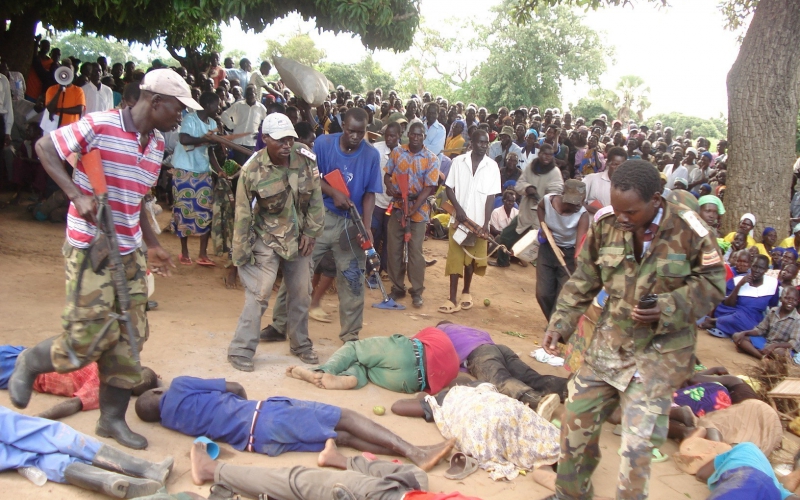Opinion: End of Kony search a blow for victims

Even though 22 years have passed since the Lord’s Resistance Army rounded up, abducted and massacred hundreds at a trading centre in the Ugandan town of Atiak the community there still comes together every year to commemorate the events of April 1995.
Every year memorial prayers for the massacre take place at a primary school a short distance from where it took place. The prayers bring people from all walks of life, from children who are too young to remember the 20 year war, to elderly people who still bear the memory of loved ones that were lost and never found. A few outsiders also attend to show solidarity.
The purpose of memorial prayers in northern Uganda are often twofold. First, they allow the community to pay respects to the many victims of LRA’s war with the Ugandan government. Second, they bring the community together to draw wider attention to their experiences. In this way, they are used as a tool to make calls to the government and other actors for their justice and reconciliation needs to be addressed.
These kinds of events are significant for a region where hopes are high for redress for years of conflict. But progress here is slow. For instance, a national policy for transitional justice that was meant to provide the means to a reparations programme, truth-telling commissions and traditional justice, among other things, has delayed for years in the Ugandan cabinet with no word on when it will become a reality.
Even though we have seen headway in terms of justice with the ongoing proceedings against alleged LRA commanders Thomas Kwoyelo and Dominic Ongwen there are still gaps. Thomas Kwoyelo’s trial at the High Court of Uganda’s International Crimes Division is fraught with delays while Dominic Ongwen’s trial at the ICC, though progressing, is not entirely reflective of the scope of the atrocities that were committed and the range of perpetrators that existed during the LRA-Government of Uganda war.
So when the news came that Ugandan and United States forces were withdrawing troops from their hunt for the LRA and its leader Joseph Kony the hopes of communities like have Atiak suffered another blow. This move comes despite the fact that Kony is still subject to an indictment by the ICC for war crimes and crimes against humanity.
Already in Uganda notions of international criminal justice exist on shaky ground, with the slow moving transitional justice processes here and the criticisms that institutions like the ICC regularly face. With this withdrawal, however, the likelihood of accountability as well as redress in the form of reparations for victim communities is reduced even further.
The reason that was given for the withdrawal does not help. Ugandan forces are reported to have made the decision to end the pursuit of the LRA because the mission in doing so was “already achieved”. This is problematic because it reinforces the message to victims of the atrocities that are alleged against Kony, as well as their communities, that accountability for the crimes that were committed during the war are not a priority.
Northern Ugandan communities themselves hear and are acutely aware of the meaning of messages like these. Many have come to terms with the fact that they must look towards themselves for redress rather than depend on others. This year, for example, the Atiak memorial prayers were focused on moving towards economic empowerment for the community. During the ceremony a religious leader urged the community to “find ways to work together for a better future.”
But do victims of conflict and their communities in Uganda have to exist in space where they are on their own? To respond to this, the conversation around accountability, justice and reconciliation needs to be shifted to the perspective of the people to whom it matters the most. If, for example, as much money, time and resources that was invested in the hunt for the LRA was instead used to support communities such as Atiak in their pursuit of justice then the impact would have been felt. Accountability for the crimes that were committed cannot be another area of redress for which northern Ugandan communities cannot depend on.
Oryem Nyeko works with the Justice and Reconciliation Project in Gulu, Uganda. He can be found on twitter at @oryembley.
Read up on the ICC Uganda investigation.
What do you think of the end of the search for Kony? Have your say in the comment box below.
